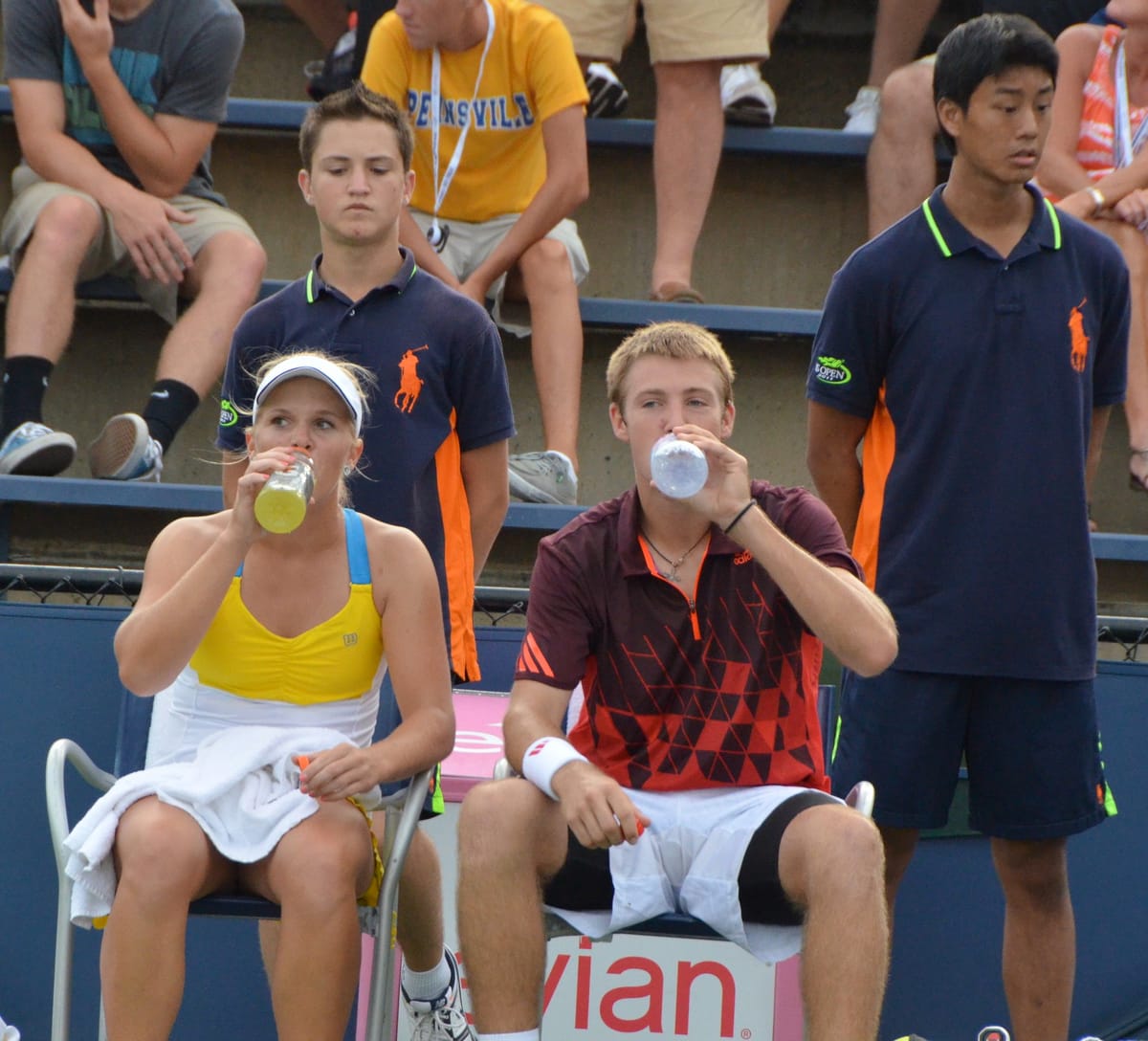Look Out, North America

Venus Williams just told Vanity Fair that her biggest inspiration in life (other than her sister) is the band 311. My brain melts. If this isn’t proof that one of America’s leading tennis names is no longer young, I don’t know what is. Remember, she’s a contemporary of this country’s active stars (read: Serena, Roddick, Fish). Which is to say, they’re tennis-old and the thrill is gone. As David Bowie said, I want the young American.
One great joy of watching tennis is a type of tourism of personality, and I don’t need Americans to actually win. But a shared geography imparts some type of investment, or at least a common landscape of advertisements and weather, so, with the French Open beginning Sunday, Wimbledon a month away, and the London Olympics soon after that, let’s take a look at some American youths who have a chance to thrill this season.
Our “next wave” of American men—Querrey, Isner, Witten, Sweeting, Levine—has been ho-hum, with the exception of Isner, who at 24 is America’s No. 2 player and the world’s No. 11. But young? Not in tennis. He is playing great tennis this year, but he might be peaking. All of these guys have hit early tennis middle age, and while I like Querrey’s prospects, the guy needs to find a season where he doesn’t manage to fall through a glass table and hurt himself so badly that he needs almost a year to recover, only to then come down with a serious umbilical cord infection.
Ryan Harrison is a 20-year-old pissed-off brat from Louisiana with a craving to kick serious ass. Ranked 56 in the world right now, he faced Frenchman Gilles Simon yesterday on court Phillipe Chatrier. This couldn’t have been more of a pressure cooker for Harrison (remember, this is the French Open), and the match was spectacular. Harrison lost, but that’s not the point. It went four sets and the first two were amazing. Harrison often breaks racquets and thunders profoundly, despite the appearance that he just left a loose kegger at Beta house. But yesterday, he was the one who forced Simon into this type of behavior. Harrison will have a big Wimbledon and we should see him play in Nottingham next week, warming up his grass court skills while the rest of the big names forge on into the second week in Paris. I love him.
Melanie Oudin is a little barrel-chested terrier who made sparks as a 17-year-old in the quarters at the 2009 U.S. Open before she proceeded to plummet 300 ranking spots on a mental tailspin. But she’s 20 now, and back. On Sunday she won her first round match, closing it out by wasting four match points and then winning with a war cry usually unsounded during any first round. I love her, too.
Donald Young has the name for this dream. He is, in fact, young, black, ranked 50 in the world, and wears his hat at a rakish tilt. Perhaps assured adolescent instability after the New York Times quoted McEnroe comparing a 10-year-old Young to himself (let’s hope the same doesn’t happen to 14-year-old Francis Tiafoe, whom the Times featured last week), Young’s an older 22 now and stands a chance of making a little run. He at least should win his match today, and then face off against France’s Richard Gasquet in the second round. I expect Gasquet to win that one, but Young has a chance.
Any of these players look to have better prospects at Wimbledon or the U.S. Open than they do this week at Rolland Garros, simply because their games are tailored for faster surfaces, but I’ll be watching all of them, my hopes low for a win but high for thrill. And I hope that, at some point this summer, we get to see Jack Sock. Sock—let’s say the “future?” of American tennis—is a tall 19-year-old with huge strokes, not a great head yet for the game, and a groin tear that will keep him out for at least several more weeks. His ranking of 336 in the world means nothing other than he’s barely played. Watch for him to maybe appear by the time the U.S. Open comes around in August. He did win the mixed doubles at the event last year, with Oudin as a partner no less (and spent most of each match batting his eyes at her while she giggled).
So come to terms with this: Agassi, Sampras, and Roddick are gone. (Yes, Roddick still plays, but he doesn’t, really—sorry dude, love you.) Get over wanting to win. We have years for these new guys to figure out how not to lose. For now, even a loss will be more exciting than familiar faces doing what they do less well than they used to do it. Why do I care that they’re young? Because they aren’t yet completely formed. Watching transformation into something yields an almost parental thrill. We project our own potential on each, despite our actual years or capacity. Which is to say, it’s about me. It’s about you. Being a fan isn’t just about winning. This is about our future.
